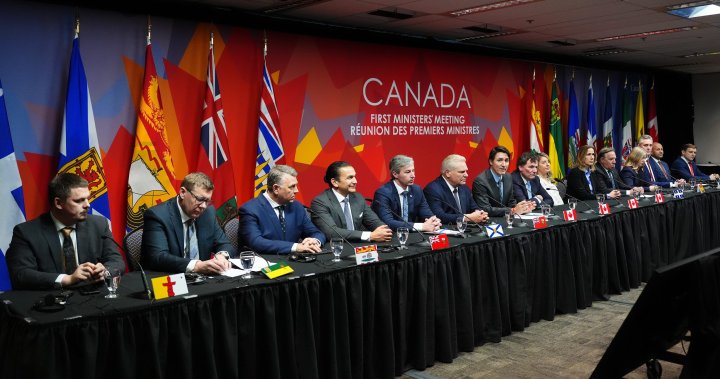Canada
Premiers head to Washington amid U.S. tariff threat. What to expect

Canada’s Premiers Unite in Washington Amidst U.S. Trade Tensions
A Diplomatic Mission to Strengthen Canada-U.S. Relations
In a significant move to fortify the Canada-U.S. trade relationship, Canada’s 13 premiers embarked on a joint diplomatic mission to Washington, D.C. This two-day trip, marking the first time all premiers have traveled internationally together, underscores the critical state of bilateral relations. The visit comes amidst looming tariff threats imposed by U.S. President Donald Trump, who recently introduced a 25% tariff on foreign steel and aluminum, including imports from Canada. With a 30-day reprieve on broader tariffs on Canadian exports, the premiers aim to highlight the mutual benefits of their trade partnership and the potential harm tariffs could inflict on both economies.
A United Front for Canada
The premiers’ solidarity is a testament to Canada’s commitment to a unified approach in addressing trade challenges. Ontario Premier Doug Ford emphasized the importance of building relationships, stating, "We’re here to communicate everything the U.S. needs from Canada." This united front is crucial, as Professor Max Cameron of the University of British Columbia noted, to avoid signaling weakness and to maintain a strong stance against economic threats. The premiers’ presence in Washington reflects their collective determination to preserve the integrated North American economy.
Provincial Leaders Take Proactive Steps
Each premier is leveraging their provincial strengths to contribute to the diplomatic effort. Alberta Premier Danielle Smith, while initially dissenting on certain retaliatory measures, is now advocating for de-escalation and mutual benefits, particularly in energy exports. Saskatchewan Premier Scott Moe is highlighting his province’s pivotal role in trade, especially in energy and food sectors. Their efforts exemplify the proactive approach Canadian leaders are taking to safeguard their economic interests.
Addressing U.S. Concerns Beyond Trade
Recognizing the broader context of U.S. concerns, Canadian leaders are engaging on issues like border security and the opioid crisis. Premier Smith has urged stricter federal policies to combat drug crime, aligning with U.S. priorities. Additionally, efforts to address fentanyl trafficking, including the potential appointment of a "fentanyl czar," reflect Canada’s commitment to shared challenges, which contributed to Trump’s tariff delay.
Diversifying Trade Partnerships
Amidst these tensions, Canadian provinces are exploring new trade avenues to reduce dependence on the U.S. Manitoba Premier Wab Kinew mentioned expanding trade offices globally, indicating a strategic shift toward diversification. This approach not only strengthens international relations but also fosters resilience against future trade disputes.
Diplomacy and the Power of Personal Connections
The premiers’ mission emphasizes the enduring value of diplomacy. By engaging in personal meetings and fostering relationships, they aim to navigate the complexities of international trade with empathy and understanding. While immediate results may not be evident, the long-term benefits of such efforts are immeasurable. As Professor Cameron noted, every diplomatic overture contributes to a stronger, more resilient partnership between Canada and the U.S. This mission, therefore, is not just about averting tariffs but about laying the groundwork for a future of cooperation and mutual prosperity.











